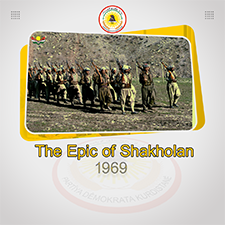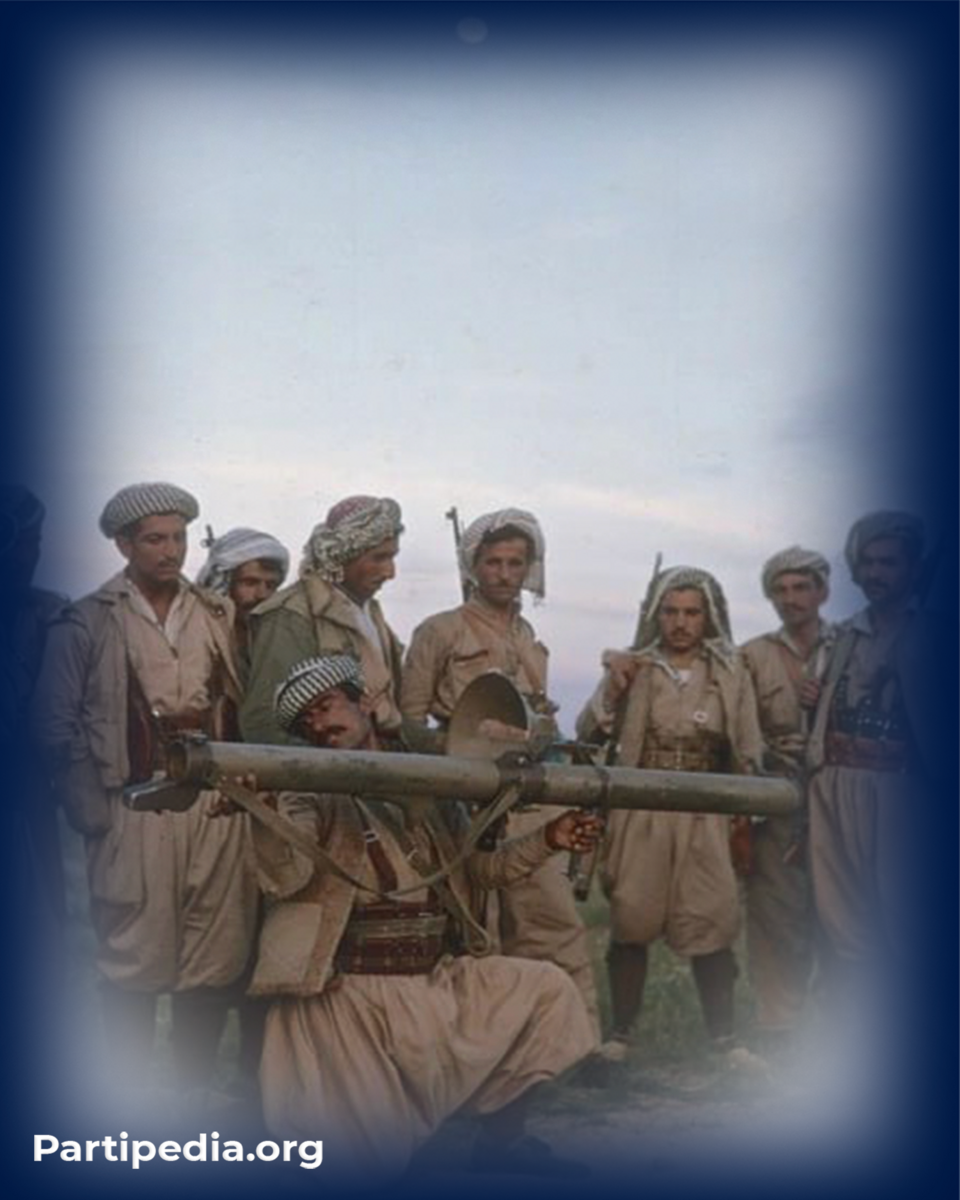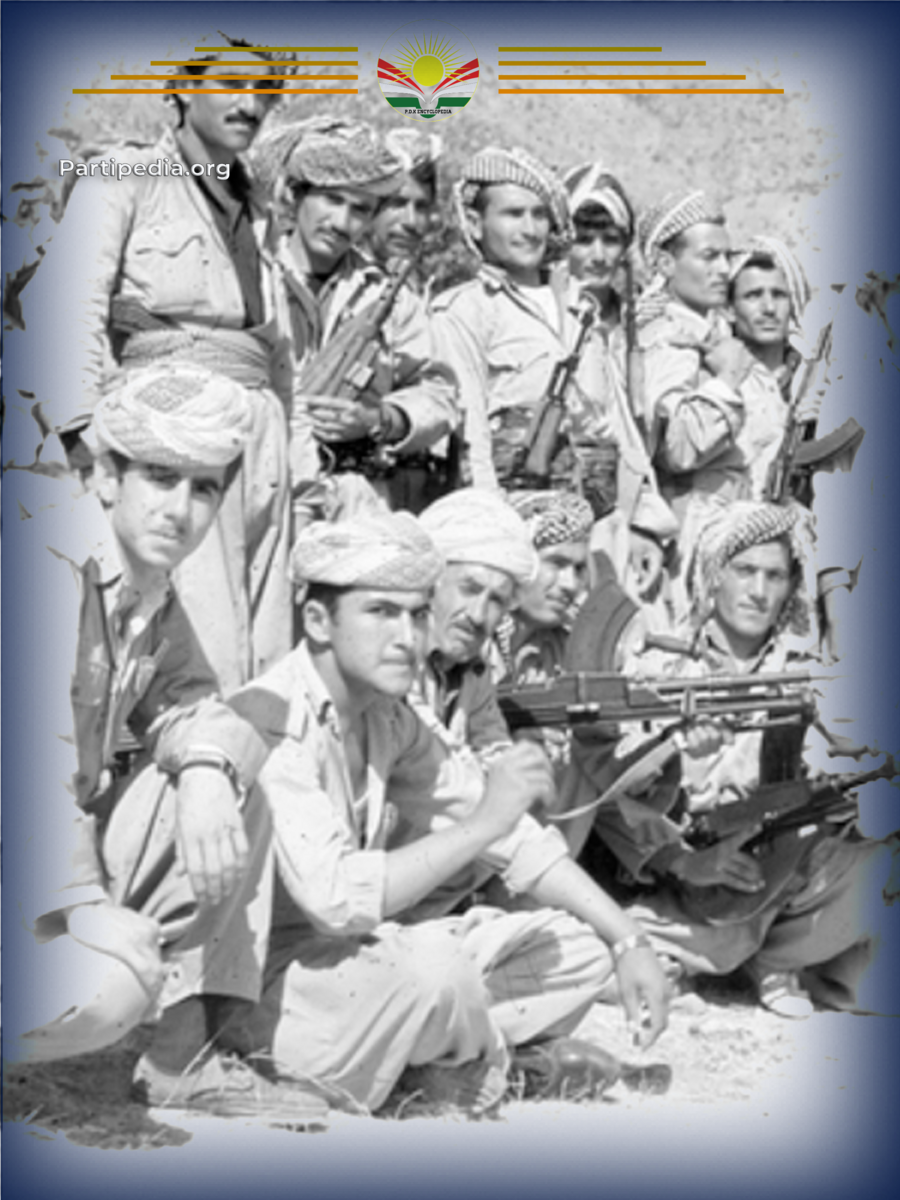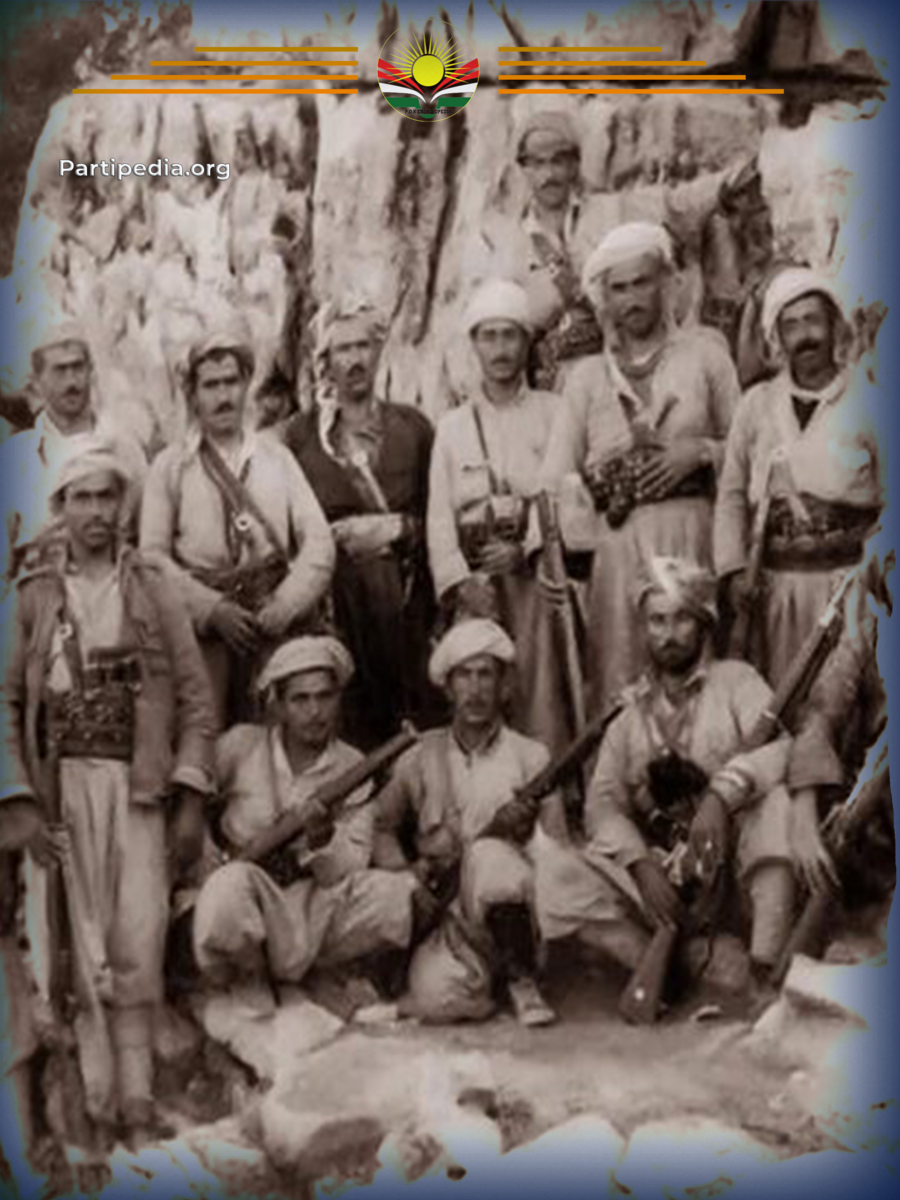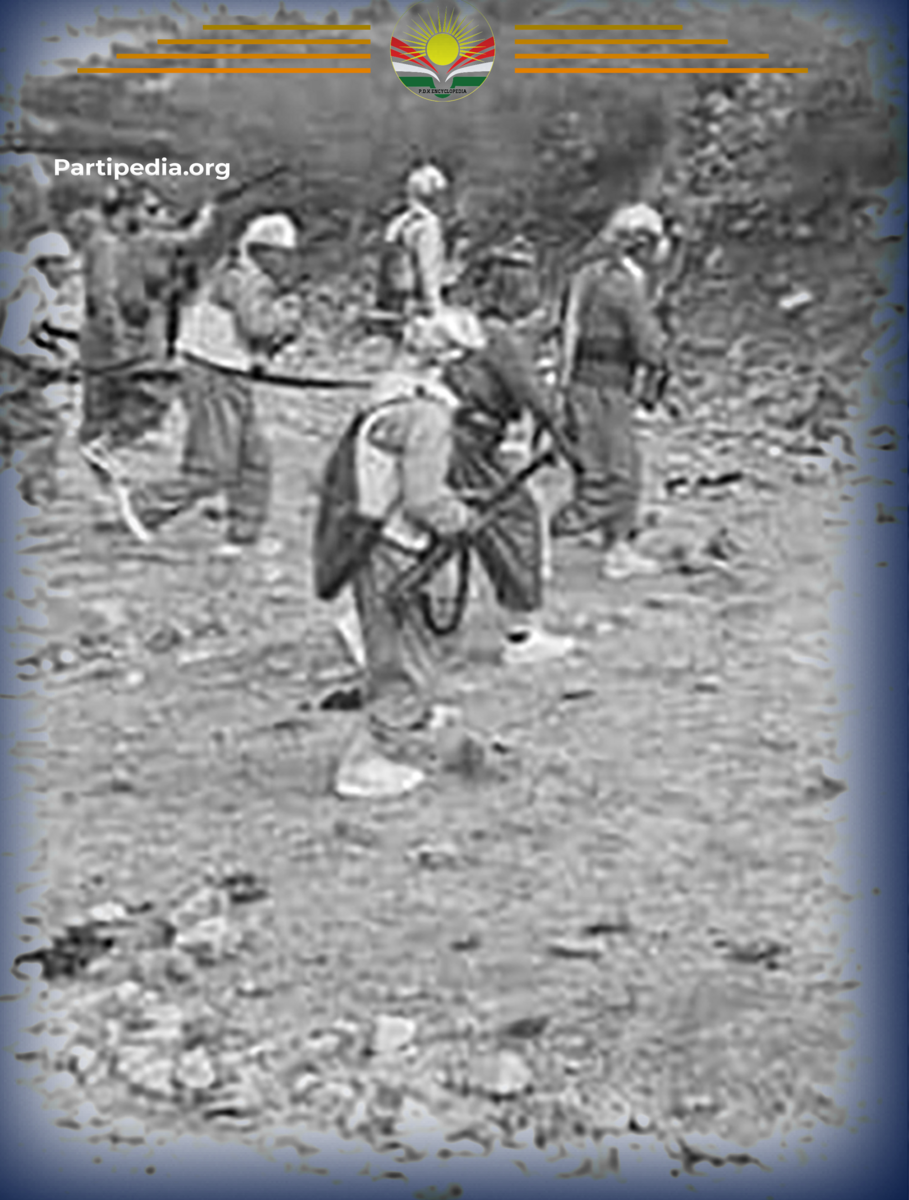However, during their stay, a government force consisting of both the army and jash unexpectedly passed through the village. It is unclear what caused the government force to become aware of the Peshmergas' presence, but they quickly surrounded the village, and a fierce battle ensued. The fighting lasted for two consecutive days, resulting in the tragic deaths of both Peshmergas. Nevertheless, their determination and bravery inflicted significant damage on the army and jashes, with several casualties and injuries sustained on their side.
Shakholan is a quaint village nestled in the northern region of Erbil, situated about 25 kilometres away from the centre of the Baranti plain. The residents of this village have been staunch supporters and providers of aid to the revolution ever since the September Revolution first began. They have stood by the Peshmerga through thick and thin, extending their unwavering support during both good and bad times. The village has also served as a safe haven for the Peshmerga, providing them with a refuge whenever needed. They never hesitated to express their respect and love for the Peshmerga.
The village of Shakholan has a remarkable tale of bravery involving two Peshmergas, Khalil and Sayed Fathi. During the September Revolution, these two individuals stood their ground against hundreds of army forces and mercenaries(jash)who recorded the pages of history.
The incident took place in late February 1969 when the two Peshmergas were guests in the village on the duty of revolution and Peshmerga. At that time, a large army and jash force were in a military exercise near Bastora. They were passing through Shakholan village towards Ifraz. Apparently, a 5-6-year-old girl who saw the troops ran home quickly to warn the Peshmergas about the government forces. At this moment, the two Peshmerga were thinking of moving from the house where they were guests to another house lest they be exposed. But in the meantime, the gunmen see them and shoot them.
The fighting started. The government forces surrounded the village, but they did not dare to approach the positions of the two Peshmergas. One of the jashes went to the village mosque and saw about twenty young people gathered in the (FAQe or theological student) room reading books. The jash said very arrogantly to the mullah of the mosque and the young men: "Are you in a meeting." Then he asked them why the two Peshmergas were here and why they allowed such people to come to their village. He then angrily left the mosque and went to the Peshmergas to fight them, but the jash was killed with the first shot.
The fighting gradually heated up. The soldiers and jashes surrounded the village and the house where the Peshmergas were stationed. The Peshmergas promised not to surrender but to fight to the last breath. With all their military capabilities, weapons and ammunition, the government forces could not overpower the two Peshmergas and approach them or come near. Instead, to quench their thirst, they were thinking of burning the house where the Peshmergas were stationed. They arrested a large number of young people and detained them until morning. They arrested them outside the village in the cold winter and guarded them with a tank, guns, and several soldiers and jashes.
The government forces stood around the village with tanks and artillery that night until morning. They repeatedly ordered them and sent messages to them to surrender. However, the Peshmergas did not submit to the demands of the soldiers and jashes, but reaffirmed their decision to fight for survival or death. The next day, a large military force with tanks, artillery, armoured vehicles and aircraft arrived from Erbil to support the first force, and the attack on the two Peshmergas continued. A number of houses in the village were burned and destroyed due to bombing, shelling and government attacks. The Peshmergas continued to defend until around noon, when Sayed Fathi was martyred. Then Khalil came out among the smoke, heat and dust of the tanks and the collapse of the trees and walls of the house and faced the tanks, and he was martyred.
Thus, after two days of fighting between the army along with a large number of jashes and fully capable of fighting in tanks, artillery, armoured vehicles and aircraft against two Peshmergas, The fighting ended with the martyrdom of both Peshmergas. However, several houses in the village were severely damaged, and the shepherds and cattle were shot at with machine guns. One civilian, a woman, was wounded. The casualties of the government forces included 12 dead and a number of injured who were evacuated by helicopter.
As a result, the revolution began to beat the mercenaries (jash) severely. Fares Bawa, the commander of the Erbil Plain Force, formed a force and sent it to the Qushtapa district to attack the mercenaries (jashes) and carry out some Peshmerga activities in order to show the people of Erbil that the Peshmerga forces are strong, they are able to continue their activities. In addition, the revolutionary leadership opened the way for Peshmerga forces to attack sensitive and important government sites such as the Babagurgur oil field. In order for the revolution to prove its strength to the government, it was able to reach deep into Iraq and attack its interests.
Resources:
-
ئارى کەریم: چەند لاپەڕەیەکى زیندوو لە شۆڕشى ئەیلوولدا، چاپخانەى خەبات، دهۆک ١٩٩٩.
-
سەید کاکە: بیرەوەرى پێشمەرگەیەک، چاپخانەى وەزارەتى رۆشنبیرى، چاپى یەکەم،١٩٩٧.
-
مسعود بارزانی: بارزانی و بزوتنەوەى ڕزگاریخوازی کورد، بەرگی سێیەم، بەشی یەکەم، شۆڕسی ئەیلوول ١٩٦١-١٩٧٥، چ: یەکەم ٢٠٠٤.
-
خورشید شێرە: خەبات و خوێن، بیرەوەریەکانی ساڵانی خەباتی پێشمەرگایەتی، چاپی سێیەم، هەولێر، ٢٠١٥.
-
کاروان جوهر محمد: ئیدریس بارزانى ١٩٤٤- ١٩٨٧ ژیان و ڕۆلى سیاسیى و سەربازى لە بزوتنەوەى ڕزگاریخوازى کورددا، چاپخانەى هێڤی، هەولێر، ٢٠١٩.




